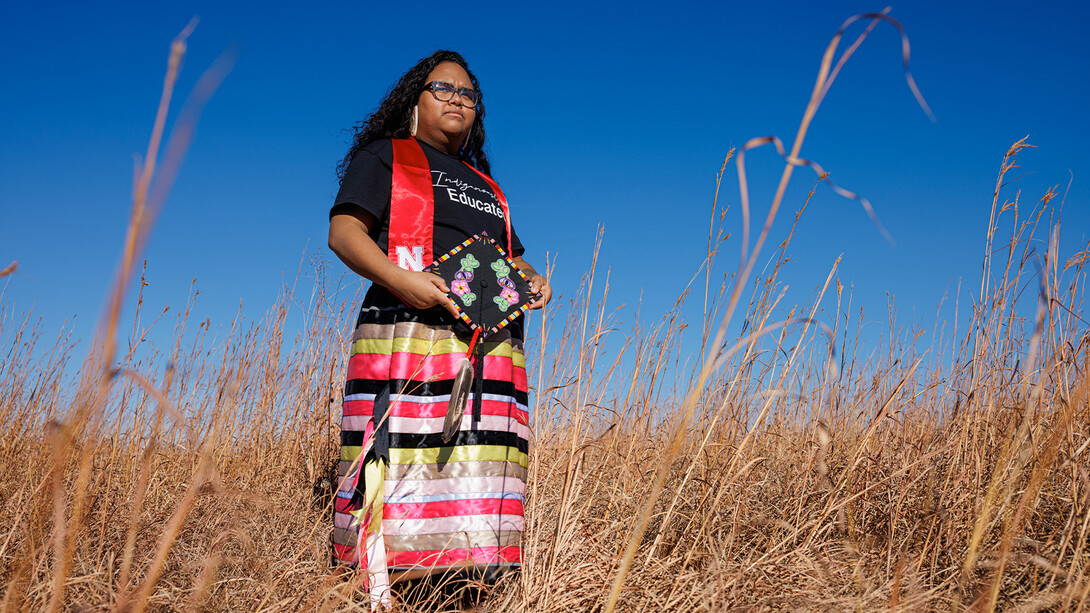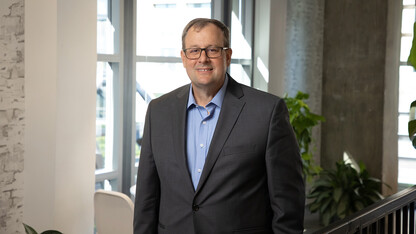
Nasia Olson-Whitefeather has become a leader who never settles for being passively involved.
Through her various leadership roles within the multicultural sorority Delta Xi Nu, as president of UNITE (University of Nebraska–Lincoln Intertribal Exchange), and in her ongoing advocacy for Indigenous students at the university, Olson-Whitefeather aimed to amplify the voices of those around her — a practice she views as key to effective leadership.
“I always work hard to make sure that everybody gets heard — if I’m in a leadership position, I can be a megaphone for people that need to speak or don’t always feel comfortable speaking,” Olson-Whitefeather said. “It’s usually the quiet people who have the best ideas.”
And although she is graduating Dec. 17 with degrees in criminal justice and criminology and child, youth and family studies, she is already finding ways to continue to support and give voice to those who need it most in her new role as a direct care provider at the Youth Services Center in Lincoln. There, Olson-Whitefeather guides young people through especially challenging circumstances.
“Growing up the oldest in a single-parent home, I think I naturally feel like a mother bear over young people who feel lost,” she said. “I want to flip the narrative they have of feeling like there’s nobody there for them.”
Her “mother bear” instincts extend to her fellow UNITE members at Nebraska, where she has implored them to take up her mantle of advocacy for resources for Indigenous students on campus.
“I want to encourage my UNITE members to speak up and advocate for themselves now that I’m graduating — if you feel like something’s not right, you can speak up and do what you need to do,” she said.
Olson-Whitefeather is grateful for how her time at the university has helped her come into her own as a leader, and noted that her various leadership roles have allowed her to grow comfortable with being an advocate.
“Coming from an Indigenous home, I know that people don’t always tend to listen to what we have to say,” she said. “Being here at the university has made me more resilient and better able to express myself in a way that people will listen.”







